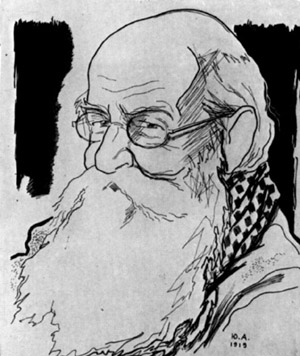Anarchism
(From anarchy: Gr. anarchia, lack of ruler or government, from anarchos, without chief or ruler; an priv., and archos, ruler). Sociopolitical movement, whose fundamental principle is the negation of the State, which is considered an to be organ of violence. In general, a. also rejects private property and religion, which it regards as factors that threaten the absolute freedom of the human being.
From the theoretical point of view, a. is eclectic, borrowing from even the most violent formulations, from to Stirner’s anarcho-individualism, Kropotkin’s anarcho-communism, and anarcho-syndicalism, so profoundly influenced by Kropotkin.
Anarcho-syndicalism denies any validity to political struggle or a leading role in the workers movement by any political party, attributing to the anarchist union the highest revolutionary status.
Bakunin maintains that the new order will spring spontaneously from anarchy, a thesis conflicting with that of Proudhon, which conceives the new society as an organization based on exchange of services and reciprocity, involving cooperatives and the principle of self-governance.
Some specialists have seen in Nietzsche an axiological a. and in Tolstoy and Gandhi practical expressions of an ethical, socialist, and non-violent a.
